UW Technics Ships TTL Converter for Sony A7C
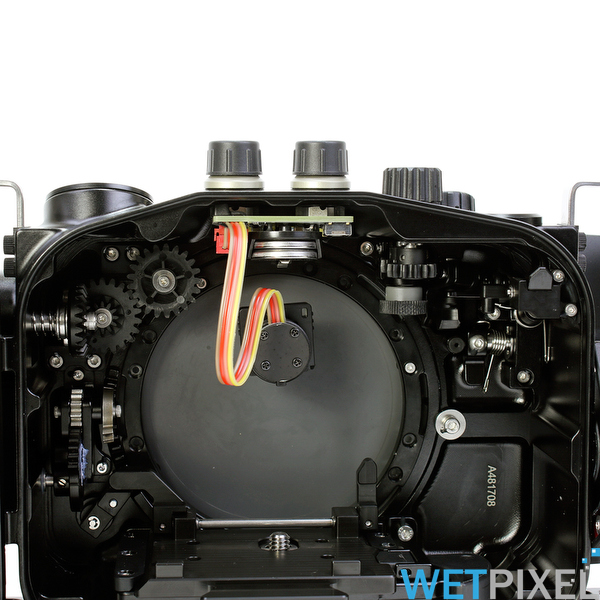
UW Technics has announced their TTL converter for the Sony A7C in the Nauticam NA-A7C housing. It offers both electrical (optional) and fiber optic triggering, can be used in HSS mode as well as front or rear sync, and allows manual strobe exposure control via the camera’s menu. It can be user-installed in a few minutes.
From UWTechnics
TTL-Converter for underwater strobes control for new NA-A7C Nauticam housing
Pavel Kolpakov, the inventor of innovative TTL flash control systems for underwater photos, shared information about the newest TTL circuit issued by his UW Technics brand. This product from UW Technics company is SONY compatible TTL circuit, - internal TTL Converter for Nauticam NA-A7C underwater housings, purposed for mirrorless full-frame SONY camera A7C.
- UW Technics product #11078-HSS offers TTL and Manual exposure control of underwater strobes, also supports High-Speed synchronization (HSS) up to 1/8000s.
- Easy user installation into Nauticam NA-A7C underwater housings
- Products support most popular underwater strobes: Inon, Retra, Ikelite, Sea&Sea, and Subtronic
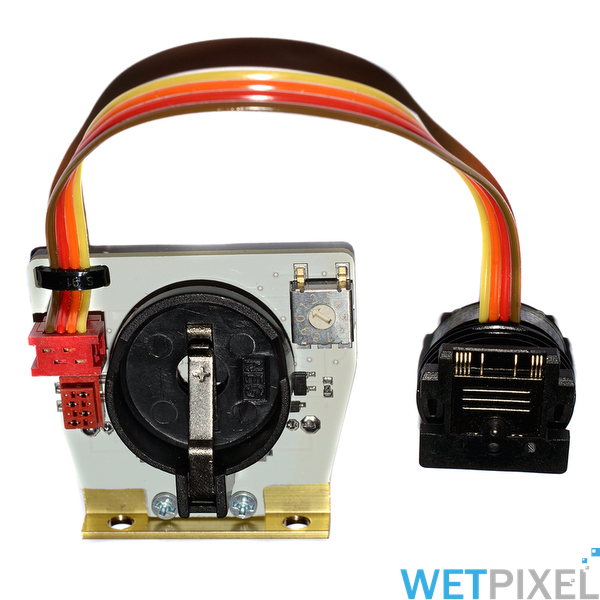
Combined circuit
The combined circuit, consisting of Optical TTL and Electric TTL system is on a single board with both triggering methods available both separately or simultaneously. High-Speed Synchronization (HSS) up to 1/8000s for “Retra” strobes is also available onboard.
Photographers can use fiber optical cable or Nikonos sync cord for underwater strobes, according to preference. Dual sync cords (Sea&Sea, Ikelite) are supported as well.
Easy User Installation
Installation is very easy and takes around 1 minute. The electronic circuit is fixed by a special metal mount and 2 bolts.
Powerful LEDs of the TTL-Converter are inserted directly into Nauticam optical bulkheads.
Installation is described in the User’s Manual included with the circuit.
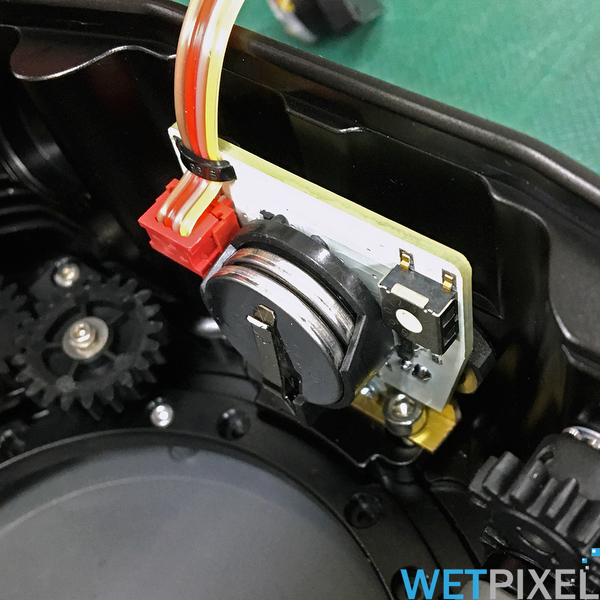
Optional Electric Bulkheads
Optional electric bulkheads (with MicroMatch 4-pin plug) available for Nauticam housings (Nikonos, Ikelite, and S-6 style) are compatible with UW Technics TTL circuits. User can connect underwater strobes by sync cords, including dual sync cords. He has wide possibilities for assembling his own configuration of the flash control system, even can combine electric and optical TTL control for few underwater strobes simultaneously.
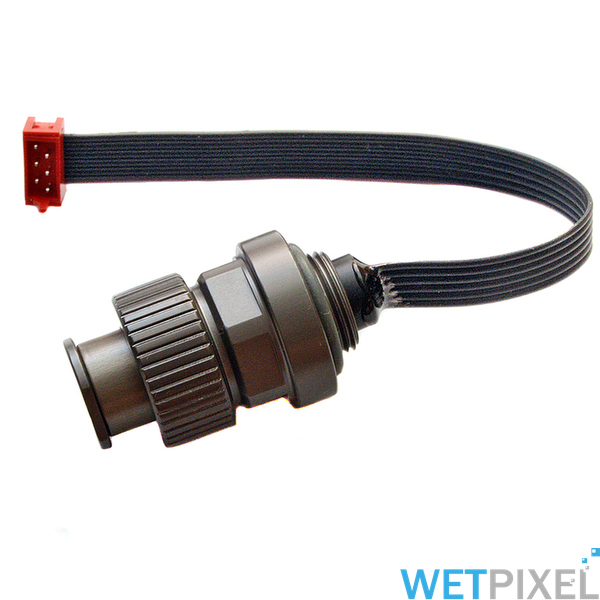
TTL flash lighting accuracy
Tests showed very good TTL accuracy in a wide range of camera settings. Users can change aperture, shutter speed, ISO, metering type, etc., but TTL-Converter automatically supports appropriate intensity flash lighting. The newest firmware contains an accurate TTL profile for each strobe type: Inon Z330 / Z240 / S2000; Retra Pro, Ikelite DS161 / DS160; Sea&Sea YS-D1 / YS-D2 / YS-250; Subtronic Pro-270 / Pro-160. Strobe type can be easily set by onboard miniature 10-position rotary switch.
No mechanical ON/OFF switch
UW Technics TTL-Converters don’t need any ON/OFF external switch. The device switches ON/OFF automatically via the camera command. This is a very comfortable feature for the user, he need not think about switching the device and need not have any mechanical switch on the housing.
Incredibly long battery life
Battery life: 2 years in continuous working mode. Products have microcurrent consumption from a pair of CR2032 batteries and an automatic ON/OFF switch. Users need not care about the battery during the dive trip.
Easy control via the camera menu
TTL circuit is fully controllable via camera menu, including switching: TTL / M, 1st/2nd Curtain sync, Slow sync, +/- Flash Exposure Compensation, Manual Flash Intensity Adjustment in M mode, Flash «Off» etc.
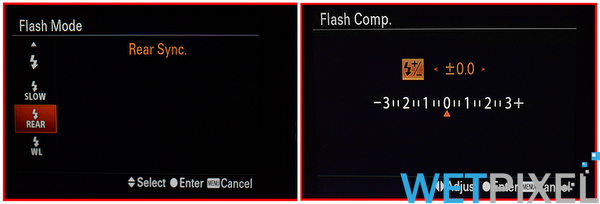
Comfortable flash intensity adjustment via camera menu
Manual Flash intensity 1/64 …1/1 adjustment is available, using camera wheel and camera scale.
TTL circuit firmware has a special module, which allows photographers to use 3 variants of M mode, including classic method and advanced method as well. Advanced control allows adjusting underwater strobe light intensity manually via camera scale (approximately 1/64 ….. 1/1). In this case, the photographer does not need to operate dial switches on the strobe body, he or she can just keep their hands on the housing, switch M mode, and set the flash intensity by camera controls.
Specifications of TTL Converter:
- Compatible photo cameras: Sony
- Compatible underwater housings: Nauticam NA-A7C
- Compatible strobes:
- Inon Z-330, Z-240, S-2000;
- Retra Pro (including HSS functionality)
- Sea&Sea YS-250, YS-D1, Sea&Sea YS-D2 (made-in-China);
- Ikelite DS-161, DS-160;
- Subtronic Pro-270, Pro-160.
- TTL outputs onboard: 2 optical + 1 electric
- (+/- Ev) “Flash Exposure compensation” adjustment: yes
- “TTL / M” mode switching: yes
- Manual Adjustment of strobe intensity (by camera controls in “M” mode): 1/64…..Full
- 1st/2nd curtain sync mode: yes
- Slow sync mode: yes
- Continuous (serial) shooting mode: yes
- Switching power “ON/OFF”: automatic
- Battery type: CR2032 (2 pcs.)
- Battery life: 2 years
- Compatible Fiber-optic cable: 613 fiber type (Nauticam #26216 / #26217, HowShot 613L etc.)
- Compatible Electric sync cord type: Nikonos, Ikelite, S-6
- Compatible Dual Electric sync cord brands: Sea&Sea, Ikelite
Contact:
UW Technics can be contacted via email or via their Facebook Page. Full specifications and detail of all their products are available on the UW Technics website.